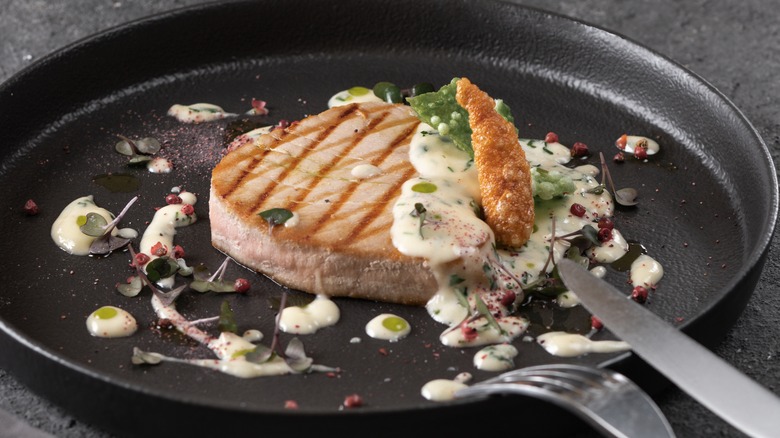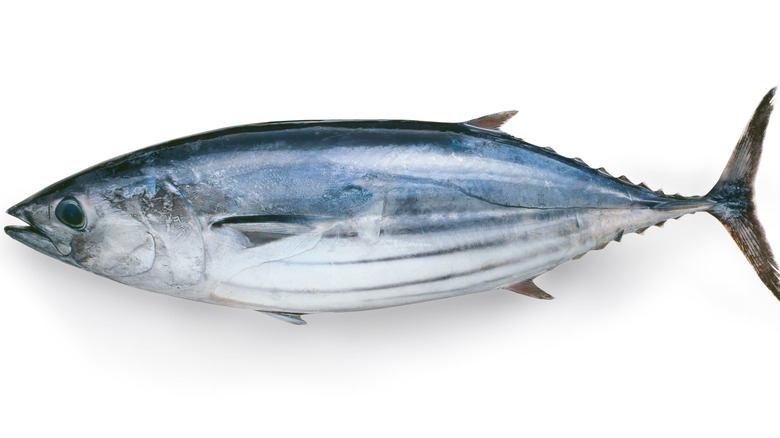Is It Safe To Eat Tuna While Pregnant?
Getting the right nutrients is crucial during pregnancy as it directly impacts a child's development. Although many vitamins and minerals can be found in fresh produce and lean proteins, these foods often lack a relevant source of omega fatty acids, which can contribute to a healthy nervous system. These acids are, however, found in fish and seafood. But, given the risks of mercury and other controversies of fresh fish, is it really safe to eat tuna while pregnant?
It's common knowledge that certain foods should be avoided during pregnancy, namely those that risk foodborne illness: unpasteurized cheese, cold cuts, and raw eggs. But, another thing that parents should be weary of are foods with high mercury levels, which can be common in fish and seafood. A compound that can cause serious cognitive impairment, consuming excess amounts of mercury can lead to fetal brain damage, plus vision and hearing impairments, reports March of Dimes.
However, while tuna may contain mercury, it's also full of nutrients that can be vital during pregnancy. The FDA reveals that the fish is a great source of vitamin B12, vitamin D, selenium, iron, and zinc, which can strengthen immune health. Additionally, the National Center for Biotechnology Information also stresses the importance of omega-3 and omega-6 fatty acids (typically found in fish like tuna) as a means of supporting brain and spinal cord development, along with preventing prenatal depression for parents. So, can expecting parents expect to eat or avoid tuna?
It's safe in moderation
While there are obvious benefits to consuming tuna, because it may contain level of mercury, this can make it hard to understand whether the pros outweigh the cons for pregnant people. Although the Cleveland Clinic warns against eating all raw or undercooked fish and seafood due to the risk of a listeria infection, that doesn't mean that cooked fish should be completely shunned.
The bottom line is that tuna is safe to eat, but just in moderation. Healthline states that pregnant parents should eat no more than 12 ounces of canned tuna (usually skipjack) or 4 ounces of albacore tuna per week. Pregnant parents are also encouraged to avoid tuna varieties that tend to have higher mercury levels like yellowfin, bluefin, and bigeye tuna, according to the American Pregnancy Association.
Eating fish that's lower in mercury like cod, salmon and crab (per What to Expect) can also be a source of vital nutrients, but if the pregnancy cravings call for tuna salad, know that it'll be okay for both you and baby — just don't overindulge.

